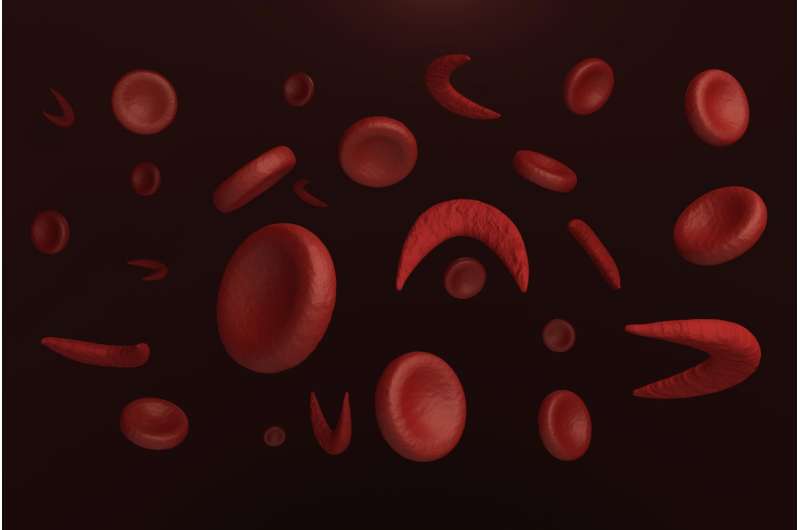After treatment with hydroxyurea, children with sickle cell disease showed improvement in lung function. Credit: ATS
For the first time, researchers were able to demonstrate that children diagnosed with sickle cell disease showed improvement in lung function after treatment with hydroxyurea, a treatment that is underused despite its demonstrated benefits. The study was presented at the ATS 2016 International Conference.
With 1 in 500 people affected, sickle cell disease is the most commonly inherited genetic disorder in people of African descent. "Persons with sickle cell disease experience an annual decline in lung function that starts in childhood," said Anya McLaren, MD, FRCP, MSc, lead author and respiratory medicine fellow at The Hospital for Sick Children in Toronto, Canada. "This study is the first of its kind to look at the effect of hydroxyurea on lung function. We found that hydroxyurea improves annual pulmonary function decline in children with sickle cell disease by more than one-third."
After receiving the treatment, all 94 study participants age 6 to 20 years old were followed for four years and their blood count, hemoglobin F, liver and renal functions measured at certain time points beginning at three months. Two measures of lung function - FEV1, which measures how quickly a person can move air out of his/her lungs, and FEF25-75, which helps determine if there is an obstruction in the airway - were taken before and after hydroxyurea. There was significant improvement in both FEV1 and FEF25-75 after treatment.
More than a decade of research in young people has produced data on the safety and effectiveness of hydroxyurea. Despite the evidence, Dr. McLaren believes clinicians' concerns about patient non-compliance and fears of potential side effects, namely carcinogenesis, are the primary reasons hydroxyurea is underused. But some of those fears may be unfounded.
"Long-term observational studies suggest beneficial effects without excessive damage to bone marrow, deleterious effects on growth and development, altered fertility, accumulation of mutations or increased carcinogenicity," said Dr. McLaren.
"Evidence that lung function may be better preserved while on hydroxyurea may encourage compliance and adherence to this medication for patients with sickle cell disease," added Dr. McLaren. "In combination with the established safety data, it hopefully will promote physician recommendations for hydroxyurea initiation and encouragement of compliance."
Provided by American Thoracic Society




















